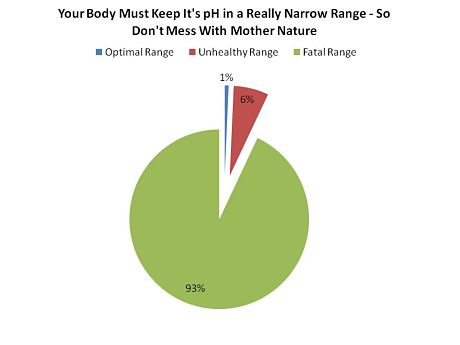Calcium Supplements May Also Make Your Body Too Alkaline
Whole plant foods contain thousands of beneficial substances, including amino acids, vitamins, minerals, essential fatty acids, complex carbohydrates, fiber, and phytochemicals, health-promoting nutrients found only in plants. These nourishing elements work together to form a vital tapestry supporting vibrant health.
Yet the media and commonplace nutritional advice focus on only a few isolated food components. Calcium is one of the most overhyped nutrients, largely because of the clout of the dairy industry. The myth is that osteoporosis is basically a calcium deficiency, and consuming lots of dairy products and calcium supplements will keep bones strong. This strategy pervades the 2010 USDA Dietary Guidelines for Americans. This USDA report recommends the unreal amount of three cups of dairy or soy milk a day for anyone age 9 or older.
Supplement manufacturers benefit as well from concern about not getting enough calcium. Bottles of calcium pills, either as an isolated mineral or combined with other minerals or vitamin D, line store shelves with a dazzling array of choices.
Nowhere in the constant repetitive message of “calcium, calcium, calcium” will you hear about the hazards of consuming too much of this mineral. Here are three of the top concerns:
• Your body could become too alkaline
• Your risk of kidney stones increases
• Your artery walls can become stiff and inflexible
Decreased kidney function (common in older adults) and certain popular prescription drugs lower the body’s ability to get rid of excess calcium and raise the risk of toxic excess. Yet older women are the ones most consistently hounded to consume lots of calcium.
Let’s look at the facts, not the hype.
You don’t want to be too alkaline. Your body very closely regulates its acidity, which is measured by a number called “pH.”
Liquids that have a pH of 7 are neutral. Those with lower numbers are considered acidic and those with a pH over 7 are alkaline.
Your body’s preferred pH is 7.4, and survival does not allow much leeway. The full pH scale for all liquids runs from zero to 14. For people, a pH of less than 7.35 or more than 7.45 can lead to health problems. This is a swing of less than 1% of the full pH range. In other words, you cannot be in optimal health in 99% of the possible pH range found in nature.
A pH of less than 6.8 or more than 7.8 is deadly. This is a variation of 7% of the full pH range. In other words, you can’t even survive in 93% of the possible pH range found in nature.
Your lungs and kidneys are the primary defenses to keep your pH in the optimal zone, with bones and intestines also important. However, your body’s ability to buffer a pH that is too high or too low can be overwhelmed. Symptoms of being too alkaline include heart dysrhythmias, lightheadedness, confusion, irritability, headache, muscle weakness, nausea, vomiting, seizures, and altered breathing. Many causes can trigger this condition, with diet being only one of them.
Barring other problems, your body is designed to keep pH right where it should be when you eat whole plant foods. The issues start when you consume unnatural concentrations of substances that would be healthy in smaller doses but are harmful when you eat too much. Calcium pills, which tend to make the body more alkaline, are an example.
A 2010 study highlighted this issue, especially as it affects pregnant and postmenopausal women with a condition called calcium-alkali syndrome. Usually triggered in recent times by consuming too much supplemental calcium, patients have excess calcium in their blood, overly alkaline body chemistry, and kidney problems. If not corrected, kidney failure can result.
A 2010 Institute of Medicine (IOM) report considers how much calcium people should consume, and what happens when they get too much. This IOM report cites the study above as a compelling reason to avoid excessive calcium intake.
Triggering kidney stones is painful. According to the IOM report, 12% of men and 6% of women will develop kidney stones. Along with pain, these stones carry the risk of infection and damaged kidney function. High blood calcium levels and calcium supplements contribute to the likelihood of developing kidney stones.
Arteries should not be stiff and brittle. Your artery walls are designed to flexibly expand and contract as your heart pumps. In developed countries where people eat a diet based on animal and processed foods, artery walls become choked. Plaque, a protein coating over a core of fats and dead cells, builds up as a result of a chronic inflammatory process that damages blood vessel walls. Plaque keeps blood from flowing freely, raises blood pressure, and makes you more prone to heart attack and stroke.
High levels of calcium in the blood can make this situation even worse. Under normal circumstances, your body stores calcium it does not immediately need in small cubbyholes in your bones. However, if you are ingesting too much calcium, this mineral can be deposited in plaque and soft tissues in your body. Calcium deposited in plaque makes blood vessel walls brittle and stiff. These unnaturally rigid blood vessels can’t work properly. They are susceptible to tears that lead to internal bleeding.
A 2010 study pulled together 11 other published clinical trials to pool data on 12,000 people. Those taking calcium supplements had a 31% increased risk of a heart attack. The researchers conclude that “treatment of 1000 people with calcium for five years would cause an additional 14 myocardial infarctions [heart attacks], 10 strokes, and 13 deaths, and prevent 26 fractures.”

Have you ever snapped a stick of chalk? If so, you know how brittle it is. Chalk is almost pure calcium.
So how do you keep your bones strong?
You want your bones to be durable and resist breaking. You really don’t care how thick they are. The popular myth is that calcium makes bones stronger.
However think about chalk, which is almost pure calcium. Imagine taking a stick of chalk and holding one end in each hand. Now snap your hands up and apart with little force. What are you left with? Two pieces of chalk, the broken remnant of the original stick. This shows calcium is brittle, not a property most people want to see in their bones.
A 2010 editorial in the prestigious British Medical Journal states “Bone mineral density, which is often used as a measure of treatment success, is a surrogate measure for real clinical benefit.” The authors go on to observe “Calcium supplements, given alone, improve bone mineral density, but they are ineffective in reducing the risk of fractures and might even increase risk, they might increase the risk of cardiovascular events, and they do not reduce mortality. They seem to be unnecessary in adults with an adequate diet.”
You don’t need dairy products either for sufficient calcium. Cows cannot make calcium any more than they can make gold. Both calcium and gold are minerals that come from the earth. While gold is rare, calcium is common and absolutely necessary for the health of plants. Cows get the calcium in their milk and bones when they eat plants, and you can get your calcium in exactly the same way.
If you eat a whole foods, plant-based diet, you might not really need much calcium anyway. Your body gets skilled at absorbing, conserving, and recycling calcium when you don’t eat excessive amounts of it. Researchers compared a group of 105 Buddhist nuns on an animal-free diet with 105 similar women in their communities. While the nuns consumed 330 mg of calcium per day on average, and had been on an animal-free diet for an average of 33 years, these women suffered no ill effects on their bone health.
A whole foods, plant-based diet balances inflammation, countering the systemic chronic inflammation that can weaken bone structure as well as damage blood vessel walls. Weight-bearing exercise has consistently been shown to build bone strength. Practices that improve balance can help avert bone-breaking falls, as can common sense safety measures around the house and while traveling. Spend the money you save by giving up calcium supplements on something worthwhile that will improve your health. How about a new pair of walking shoes or a safety bar for your shower?
Intrigued? Now you can use our Whole Foods Blog Finder to target informative, fun postings on plant-based nutrition. Quick information at no cost!
Blog posting by Janice Stanger, Ph.D. Janice authored The Perfect Formula Diet, the smart person’s nutrition book built on sustainable food choices. Enjoy six kinds of whole foods for permanent, hunger-free weight loss and health.
Tags: 2010 USDA Guidelines for Americans, acid-base balance, bone health, calcium, calcium-alkali syndrome, cardiovascular disease, getting healthy, Institute of Medicine, Janice Stanger, kidney stones, nutrition facts, Plant-based nutrition, vegetables, whole foods







That’s the beauty of a varied whole foods diet. You will get enough calcium, mostly from the vegetables you eat. But all whole plant foods have calcium because this mineral is an essential part of a plant’s metabolism.